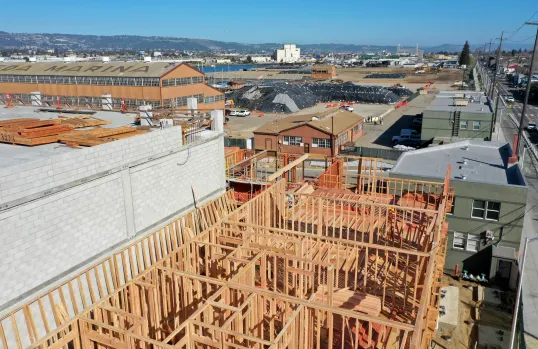
The housing crisis in California is reaching a boiling point. Right now, 68% of Californians say housing affordability is a major issue, and by 2025, California will need 3.5 million additional housing units to meet rising demand. Renters in California typically pay 50% more in rent than those in other states.
That’s where Proposition 5 comes in — by lowering the voting threshold for passing local bonds to support housing and other infrastructure from two-thirds to 55%, the proposition increases the available tools to address this critical issue of affordable housing.
Passing local bonds means the selling of government-backed securities to generate revenue for housing or infrastructure. These funds, in turn, are able to support a multitude of affordable housing programs, such as providing first-time homebuyers’ programs, building new housing like affordable for-sale ownership or rental housing and repairing existing affordable housing.
Moreover, this proposition allows for local communities and taxpayers to decide on the money gained from bonds and how they’re spent. This promotes accountability and provides nuanced support on a case-by-case basis.
Recently, California’s largest affordable housing measure of $20 billion was removed from the November ballot due to a perceived lack of support. The two-thirds threshold was a daunting bar to reach, and lowering the bar to 55% would have allowed for more consideration and deliberation of the measure.
Despite these benefits, opponents argue that Prop 5 makes it easier for the state government to increase local property taxes to pay for these bonds.
Yet, according to proponents, Prop 5 would not directly raise taxes; it simply allows local voters to decide on the selling of government bonds. Even so, improvement in affordable housing offsets any economic issues by increasing spending and employment in surrounding areas.
As a whole, the proposition doesn’t open the door to any wildly radical changes — after all, 55% voter approval is still needed. All it does is slightly lower the bar to a place that’ll ease the burden on those seeking more affordable housing across the state. Prop 5 presents a balanced, common-sense solution.

























